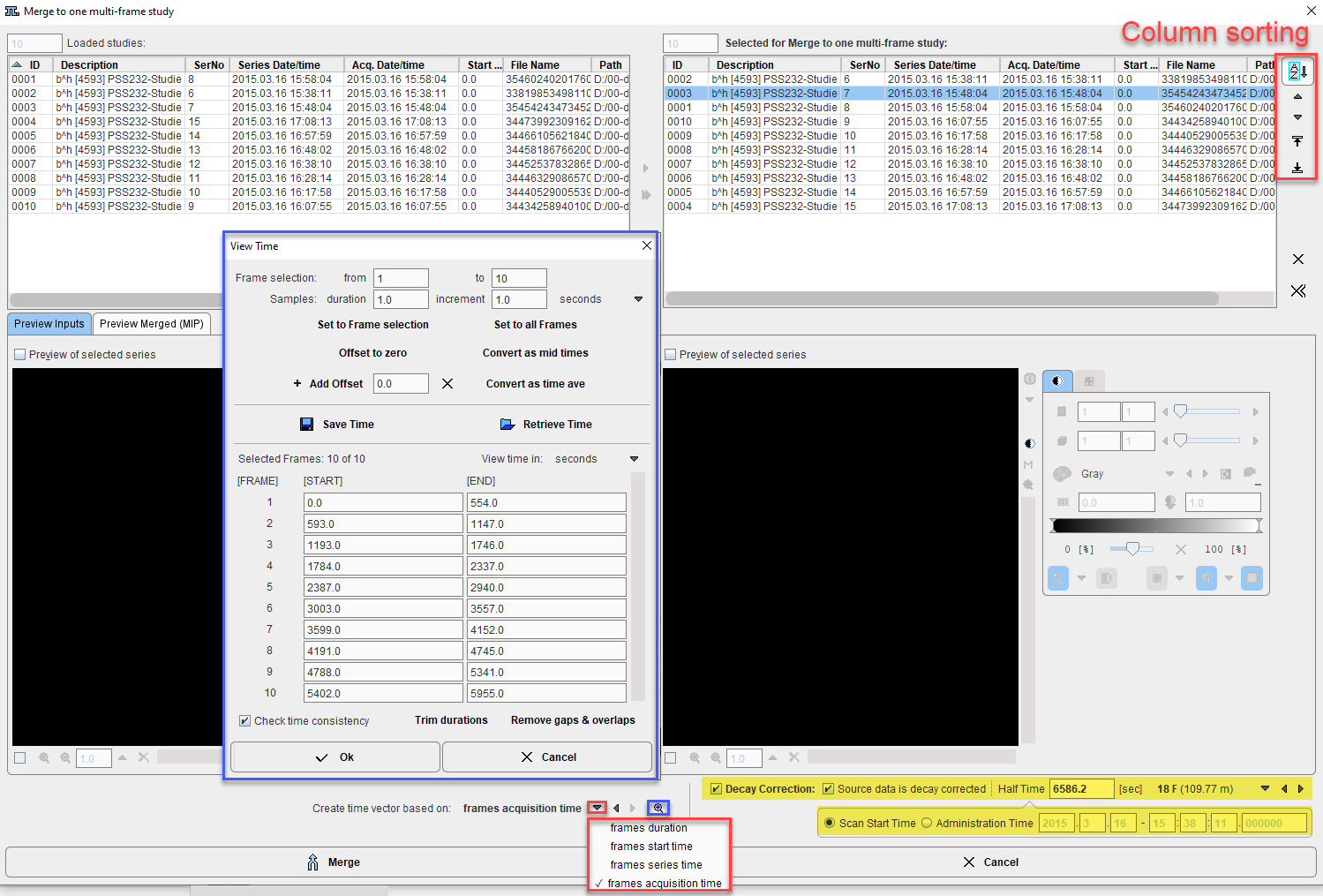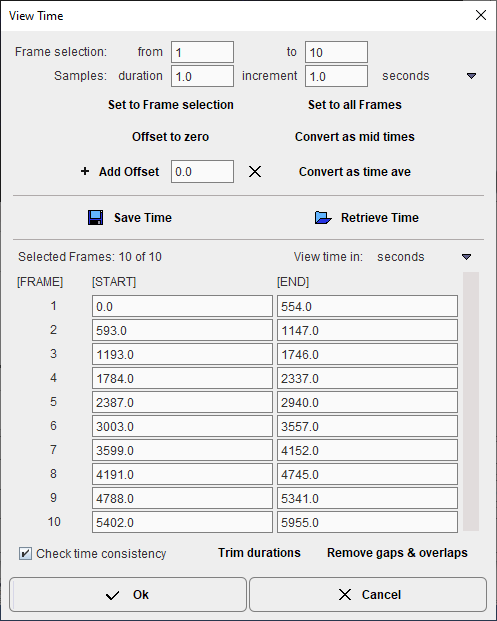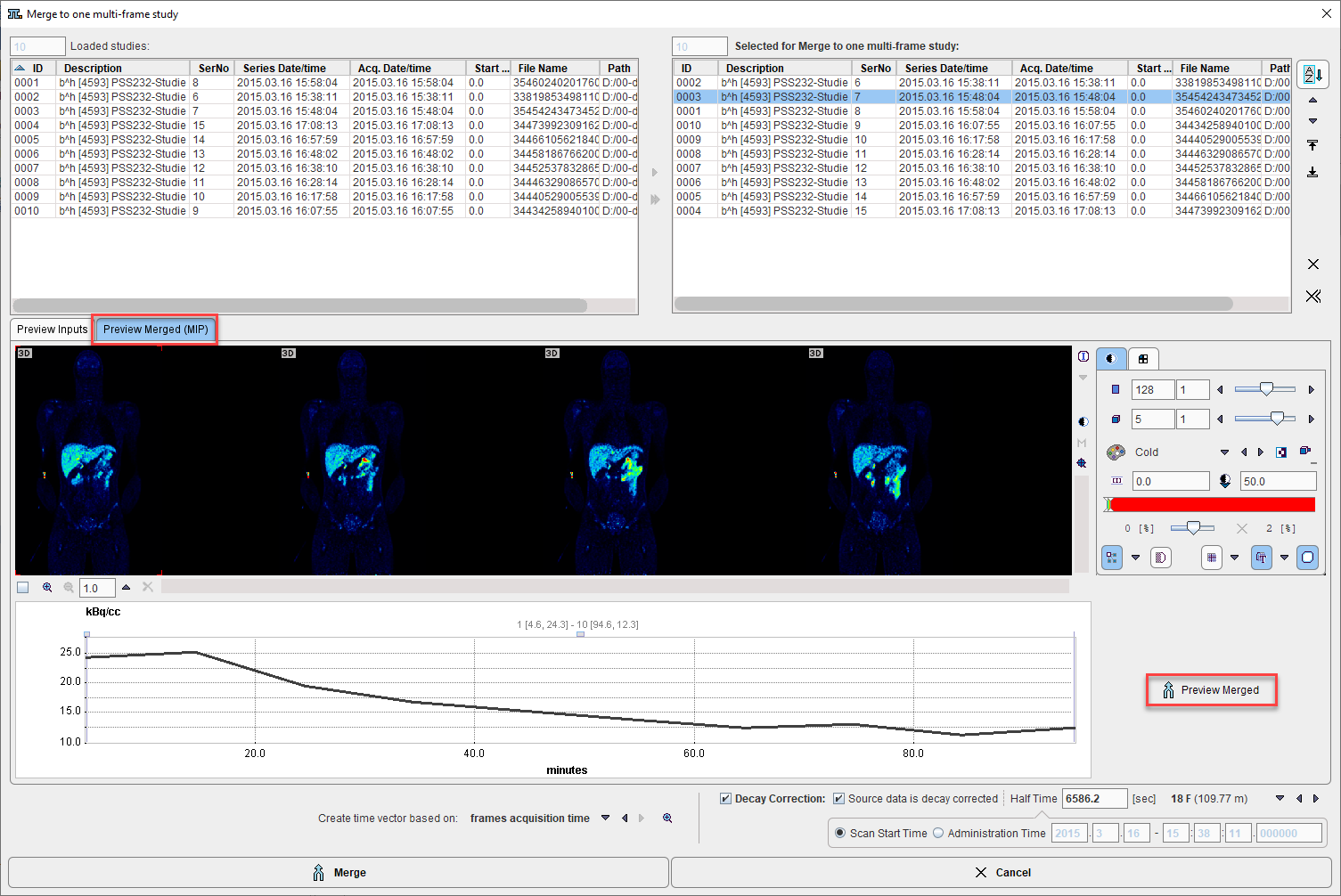The Merge Series tool allows combining image series with the same geometry into a joint dynamic series.
Activating Merge Series opens a dialog window as illustrated below. The list in the upper left shows the loaded image series in loading order. The list in the upper right shows the image series which will be combined into a dynamic series. Initially, all series appear in sorted by Acq Date/time. The options related to applying decay correction during merging and generating the timing of the new dynamic series is located in the lower part.

Merging List Preparation
Series can be copied from left to right by double clicking in the left list, or selecting a list element and activating the arrow between the list. The double arrow copies all loaded series to the right.
The order of the Selected for Merge to one multi-frame study list can be modified by selecting a list element and shifting its position by the arrows to the right.
![]()
If the columns contain information which is suitable for sorting, the sorting button AZ can be enabled and sorting started by clicking into the column header. In the example above, the acquisition time was used for sorting the static series into the proper acquisition order.
Decay Correction Setup
When joining PET or SPECT data into a dynamic series, a consistent decay correction has to be ensured. Usually, such data is corrected to the acquisition start. Therefore, when joining static series into a dynamic series, later series have to be decay corrected to the start of the first acquisition by scaling them with a corresponding factor. The proper setting for this situation is to enable Decay Correction, confirm that Source data is decay corrected, and check that the isotope Half Time is correct. The zero time of the common decay correction of all series is indicated in the Scan Start Time field. Note that this information is indicative only and cannot be changed. It corresponds to the start time of the first series in the Selected for Merge to one multi-frame study list.

Note: The decay correction should not be enabled when the isotope information is not present in the images: e.g. for nifti data the check box correction have to be switched off.
Dynamic Series Timing
The timing of the created dynamic series needs to be constructed for use in decay correciton. It can be specified using the Create time vector based on selection

Frames duration: allows merging the data with no reliable start time information and no gaps between frames acquisition. The time vector is created based on the frames duration.
Frames start time:allows copying information from the time vectors of the series that are merged.
Frames series time: uses the series time of the first image as the base for the time vector and uses the offset to series time of other images to obtain the start times for the other frames.
Frames acquisition time: uses the acquisition time of the first image as the base for the time vector and uses the offset to aquisition time of other images to obtain the start times for the other frames.
Please use the ![]() buttom to inspect the time vector with the current selection. In the example below which was generated using frames acquisition time, there are gaps of about 40 seconds between the acquisitions. They occurred because the scanner had to be restarted for the subsequent whole-body acquisitions. Using frames duration, this information would have been missed.
buttom to inspect the time vector with the current selection. In the example below which was generated using frames acquisition time, there are gaps of about 40 seconds between the acquisitions. They occurred because the scanner had to be restarted for the subsequent whole-body acquisitions. Using frames duration, this information would have been missed.

Select the Preview Merge (MIP) subtab and activate the Preview Merged button to see the preview of the merged series:

Processing is started with the Merge button. Before the new series is created and optionally decay corrected, the timing is displayed in a dialog window for confirmation and editing.